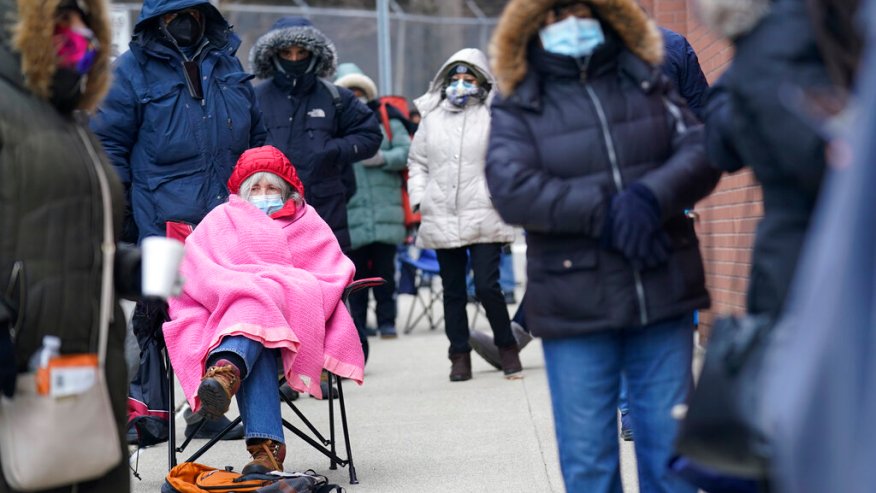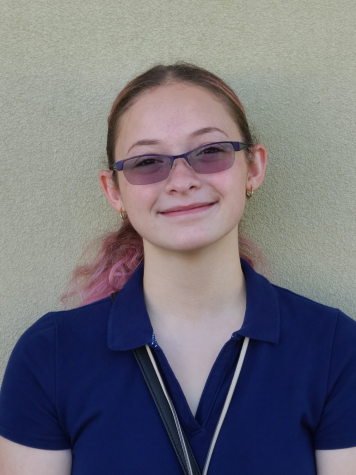Over 30 Percent of Americans Say They Won’t be Getting the COVID-19 Vaccine
Judy McKim, center left, waits in line with others for the COVID-19 vaccine in Paterson, N.J., Thursday, Jan. 21, 2021. The first people arrived around 2:30 a.m. for the chance to be vaccinated at one of the few sites that does not require an appointment.
February 22, 2021
A poll released on Wednesday by The Associated Press-NORC Center for Public Affairs Research shows that nearly 1 in 3 people in the United States say they may not get the COVID-19 vaccine. The poll surveyed 1,055 adults in the U.S. between Jan. 28 – Feb. 1.
15 percent of survey respondents said they will “definitely not” get the COVID-19 vaccine, while 17 percent said that they will “probably not” get the vaccine.
67 percent of survey respondents said they plan to get vaccinated or have already received an inoculation, including 19 percent who said they “probably will,” 35 percent who said they “definitely will,” and 13 percent who said they have already gotten their shot.
Among those who said they do not plan to receive the vaccine, 60 percent cited concerns over possible side effects. 48 percent said that they “plan to wait and see if it is safe” and that they “may get it later.”
The poll suggests that substantial skepticism persists more than a month and a half into a U.S. vaccination drive that has encountered few, if any, serious side effects. It found that resistance runs higher among younger people, people without college degrees, Black Americans, and Republicans.
In people ages 30-44, Republican voters and people without college degrees were among the most likely to say that they “definitely will not” get a COVID-19 vaccine when one becomes available to them. Compared to older Americans, who are more likely to say they have received a shot, or will get vaccinated.
The poll also shows that 57 percent of Black Americans say they have received the vaccine or plan on getting vaccinated. 68 percent of white survey respondents and 65 percent of Hispanic respondents agreed.
Dr. Anthony Fauci, the director of the National Institute of Allergy and Infectious Diseases, has forecasted that achieving herd immunity against COVID-19 could require as much as 90 percent of the population to be vaccinated. It was previously estimated that herd immunity could require upwards of 75 percent of the country to be vaccinated.
“When polls said only about half of all Americans would take a vaccine, I was saying herd immunity would take 70 to 75 percent,” Fauci told The New York Times in December. “Then, when newer surveys said 60 percent or more would take it, I thought, ‘I can nudge this up a bit,’ so I went to 80, 85.”
Over 33 million people in the U.S. have received at least one dose of a COVID-19 vaccine, representing over 10 percent of the country’s total population.
Health officials are trying to counter concerns about the vaccine with science. The latest evidence indicates that the two vaccines being used in the U.S. — Pfizer’s and Moderna’s — are effective even against the variants, Fauci said.
While the development of the vaccines was unusually fast, it was the end result of many years of research. The vaccines went through clinical trials involving thousands of people, all of whom were monitored for 60 days after their last dose. Studies of other vaccines have found that harmful side effects tend to materialize within 45 days.
“Safety certainly was not compromised, nor was scientific integrity compromised,” Fauci said. “Many have reason for skepticism. But I think that when you explain the facts and the data to them, you can win them over.”


